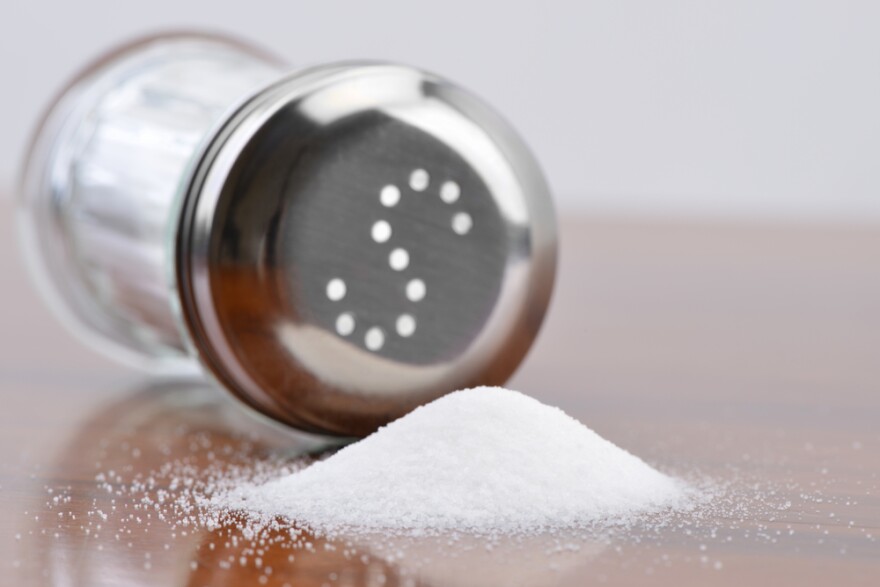Americans consume a lot of salt. But a new study published in Pediatrics says many women who are pregnant or breast feeding aren’t getting enough iodine found in salt and other foods. In this segment of Vital Signs, Dr. Sheri Puffer of Texas Health Arlington Hospital explains what’s causing the deficiency and why iodine’s important.
Results of Study in Pediatrics on Iodine Deficiencies in Pregnant Women
What is Iodine Deficiency?
The American Thyroid Association says iodine is an element needed for the production of thyroid hormone. The body doesn’t make iodine, so it’s an essential part of your diet.
Iodine is found in various foods:
- Cheese
- Cows milk
- Eggs
- Frozen Yogurt
- Ice Cream
- Iodine-containing multivitamins
- Iodized table salt
- Saltwater fish
- Seaweed (including kelp, dulce, nori)
- Shellfish
- Soy milk
- Soy sauce
- Yogurt
If you don’t have enough iodine in your body, you can’t make enough thyroid hormone. Thus, iodine deficiency can lead to enlargement of the thyroid, hypothyroidism, and to mental retardation in infants and children whose mothers were iodine deficient during pregnancy.
Before the 1920s, iodine deficiency was common in the Great Lakes, Appalachian, and Northwestern U.S. regions and in most of Canada. Treatment of iodine deficiency by the introduction of iodized salt has virtually eliminated the “goiter belt” in these areas. However, many other parts of the world do not have enough iodine available through their diet and iodine deficiency continues to be an important public health problem globally. Approximately 40% of the world’s population remains at risk for iodine deficiency.
How is iodine deficiency treated?
There are no tests to confirm if you have enough iodine in your body. When iodine deficiency is seen in an entire population, it is best managed by ensuring that common foods that people eat contain sufficient levels of iodine. Since even mild deficiency during pregnancy can have effects on delivery and the developing baby, all pregnant and breastfeeding women should take a multivitamin containing at least 150 μg iodine per day.
How is iodine deficiency prevented?
Over the last 80 years, world-wide efforts have been made to eliminate iodine deficiency. Indeed, elimination of iodine deficiency has been a major goal of the World Health Organization. Iodized salt has been the mainstay of treatment for iodine deficiency worldwide, including in the United States. Injections of iodized oil are occasionally used in regions of the world where widespread iodized salt use is not possible. Iodination of water supplies also has been effective in some places.
United States Recommendations – The Institute of Medicine has set the Recommended Dietary Allowance (RDA) for iodine in adult men and women at 150 μg per day. Individuals who add tablet salt to their food regularly should use iodized salt. One teaspoon of iodized salt contains approximately 400 μg iodine. Most iodine-containing multivitamins have at least 150 μg iodine, but only about half of the types of multivitamins in the U.S. contain iodine.
The RDA is 220 μg iodine per day for pregnant women and 290 μg iodine per day for breastfeeding women. Because the effects of iodine deficiency are most severe in pregnant women and their babies, the American Thyroid Association has recommended that all pregnant and breastfeeding women in the U.S. and Canada take a prenatal multivitamin containing 150 μg iodine per day.






